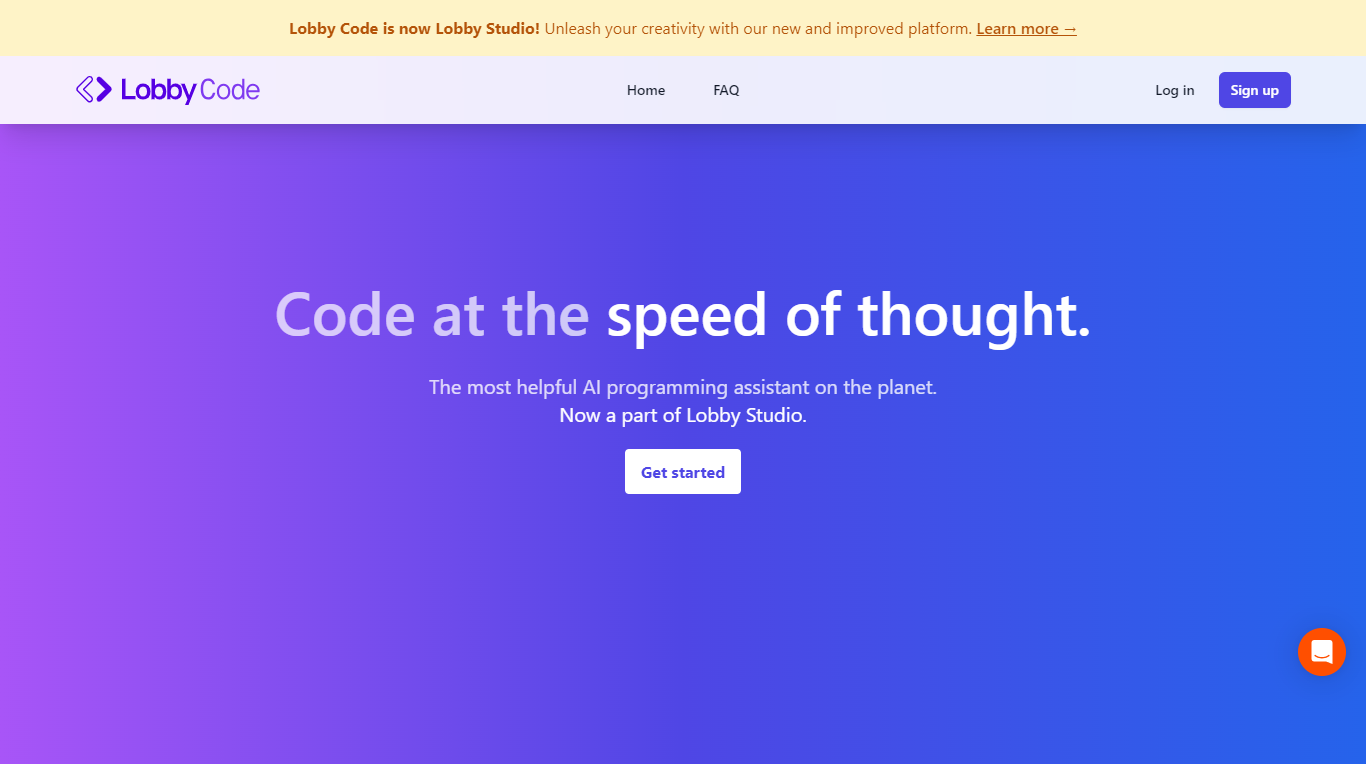Lobby Code vs Codex
In the clash of Lobby Code vs Codex, which AI Code Assistant tool emerges victorious? We assess reviews, pricing, alternatives, features, upvotes, and more.
When we put Lobby Code and Codex head to head, which one emerges as the victor?
Let's take a closer look at Lobby Code and Codex, both of which are AI-driven code assistant tools, and see what sets them apart. Lobby Code stands out as the clear frontrunner in terms of upvotes. Lobby Code has been upvoted 6 times by aitools.fyi users, and Codex has been upvoted 5 times.
Want to flip the script? Upvote your favorite tool and change the game!
Lobby Code

What is Lobby Code?
Lobby Code, now rebranded as Lobby Studio, proudly stands as the most helpful AI programming assistant on Earth, designed to augment the coding experience for developers around the globe. This cutting-edge platform empowers you to code at the speed of thought by providing real-time assistance for a multitude of programming tasks. From scaffolding your project to implementing core logic, Lobby Studio streamlines the development process, allowing you to focus on innovation and turn your ideas into reality.
The platform boasts support for over 20 of the most popular programming languages and comes with a built-in library that ensures the most popular packages and libraries are ready to use with zero configuration. Moreover, its Web3 support feature includes generating tokens, NFTs, smart contracts, and more with Solidity, making complex blockchain development more accessible. Lobby Studio's capabilities are not just limited to code generation; it also acts as an AI engineering companion for pair programming, debugging, and refactoring, helping to build new features, fix bugs, and improve your codebase more efficiently.
Codex

What is Codex?
OpenAI Codex is the latest advancement from OpenAI, a cutting-edge AI system designed to understand and translate natural language into code. This powerful tool is now available through a private API in private beta, broadening its accessibility for businesses and developers aiming to create more intuitive natural language interfaces for their applications.
OpenAI Codex excels at a range of programming tasks, including transpilation, code explanation, and refactoring. It supports a wide array of programming languages such as Python, JavaScript, Go, Perl, PHP, Ruby, Swift, TypeScript, and even Shell, making it an incredibly versatile coding assistant. Its 14KB memory for Python code means it can handle complex contextual information with ease, offering more comprehensive coding solutions compared to its predecessor, GPT-3. OpenAI Codex not only boosts productivity by simplifying the coding process but also lowers the barrier to entry for programming, opening doors for non-coders to interact with software in a more manageable way.
Lobby Code Upvotes
Codex Upvotes
Lobby Code Top Features
Speedy Coding: Code at lightning-fast speeds with an AI assistant.
Language Support: Over 20 popular programming languages supported.
Library Access: Instantly use the most popular libraries with no setup.
Web3 Integration: Solidity support for blockchain development.
Development Acceleration: Scaffold projects and build features rapidly.
Codex Top Features
Improved AI System: OpenAI Codex is an advanced system that turns natural language into code.
Support for Multiple Programming Languages: Capable in Python, JavaScript, Go, Perl, PHP, Ruby, Swift, TypeScript, and Shell.
Larger Contextual Memory: Offers a 14KB memory for Python code, allowing for complex tasks.
Versatile Functionality: Suitable for transpilation, code explanation, and refactoring.
Accessibility through API: Released in private beta for developers and businesses to build upon.
Lobby Code Category
- Code Assistant
Codex Category
- Code Assistant
Lobby Code Pricing Type
- Freemium
Codex Pricing Type
- Freemium
